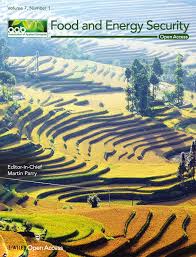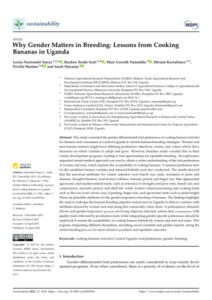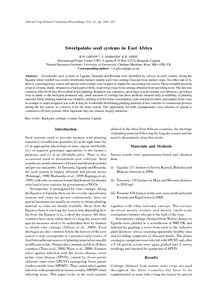Integrated pest management (IPM) versus farmers’ pest management practices were evaluated in potato (Solanum tuberosum L.) in the central coast of Peru. IPM technologies consisted of seed treatment, insect pest, and disease scouting using action thresholds for decision making to apply pesticides, and the use of trapping devices and selective insecticides versus chemical control by potato farmers. An ecological, environmental, and economic analysis of both approaches was carried out by using biodiversity indices, environmental impact indicators, and partial budget analysis. The leafminer fly Liriomyza huidobrensis (Blanchard) and the bud midge Prodiplosis longifila (Gagne) were the most important pests during the cropping season. Larval infestation of both pests and leafminer foliar damage were less in IPM plots. Almost twice as many pesticide (insecticide and fungicide) applications per season were carried out on farmers’ practices plots with 16.7 sprayings compared to 9.7 sprayings in IPM plots. The total quantity of pesticides used per season was higher under farmers’ practices (4,614.3 g a.i./ha) than in IPM (2,042.6 g a.i./ha) plots. Likewise, farmers applied five times more insecticides (3,620.3 g a.i./ha) than IPM (722.55 g a.i./ha). Methamidophos and chlorpyrifos accounted for 65% of the environmental impact (EI) value of 137/ha in farmers’ fields. IPM strategies reduced the EI to 42.4/ha, which represents a reduction of 69.2%. Further, IPM achieved 35% higher marketable potato yield than farmers’ practices. Partial budget analysis showed a higher net profit in all IPM plots, with an average increase of US$1,410/ha. The field trials demonstrated the environmental and economic viability of IPM for potato in the central coast of Peru. However, while there are effective integrated components for leafminer fly management, there is a clear need to develop and integrate more sustainable and ecological pest management strategies for other economically important pests such as the bud midge.
Ecological, economic, and environmental assessments of integrated pest management in potato: A case study from the Canete Valley, Peru
Citation: Mujica, N.; Kroschel, J. 2019. Ecological, economic, and environmental assessments of integrated pest management in potato: A case study from the Cañete Valley, Peru. Food and Energy Security. ISSN: 2048-3694. 8. 25 p.
2018-11-12
POTATO AGRI-FOOD SYSTEMS, POTATOES
SOUTH AMERICA
PERU
journal_article



